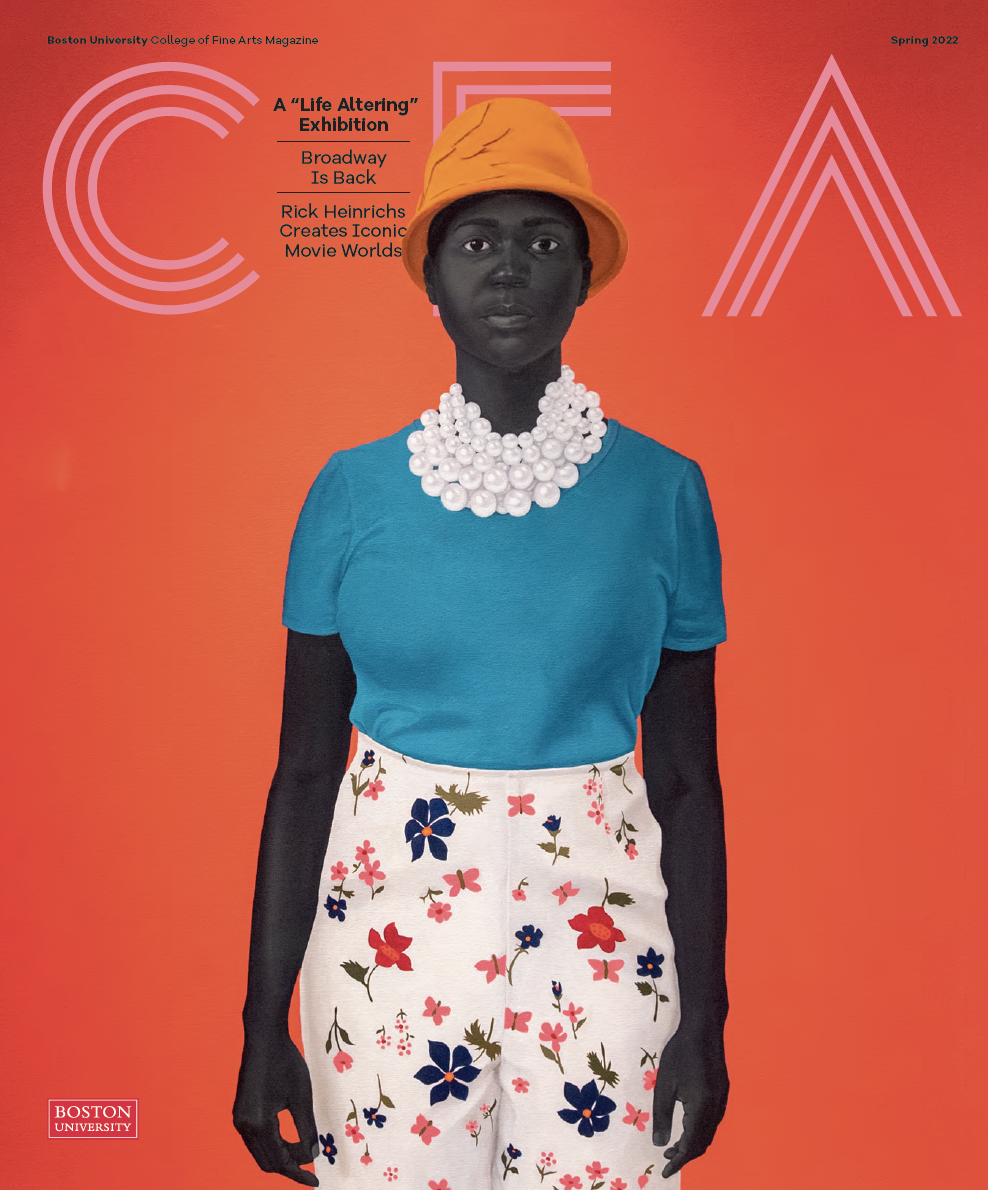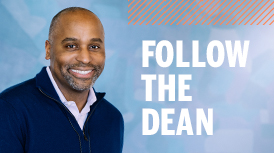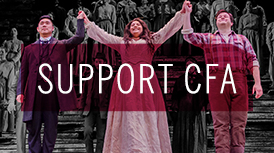Q&A: Leading Questions
As CFA heads into its sixth decade, we are asking ourselves some tough questions. Our mission is to ensure that we are arming students with the skills and expertise they need to be successful as artists. So, we’re asking our faculty, administration, students, and alums for input on how to address the changing role of the arts in society and assess the value of an arts education. We’ve put some of our most pressing questions to the individuals featured throughout this issue of Esprit—now, we want to hear from you!
To join the conversation and help shape CFA for the next generation of artists, submit your own answers to the following questions on Facebook, Twitter, and Instagram with the hashtag #mycfa.
 Peter Del Vecho (’80), producer for Walt Disney Animation Studios
Peter Del Vecho (’80), producer for Walt Disney Animation Studios
Q. Would you recommend conservatory-style training to emerging artists? Why or why not?
A. What is most important is an education grounded both in traditional drawing and animation classes, as well as computer animation. Study human form. Always have a sketchbook. Observe facial expressions and be a reader of subtext in others. Try and express subtext in your acting. What is going on in the eyes of the character? Study music and art and be an avid reader to keep your imagination open. Collaborate with others, as this is not a business done in isolation.
Peter Paige (’91), co-creator of the ABC Family drama, The Fosters
Q. What’s the biggest misconception about artists in your field?
A. That you have to be ruthless to succeed. You need tenacity, you need talent, you need courage—but you do not need to be unkind. In fact, a little kindness has brought me great returns on this path.
Marié Abe, assistant professor of music
Q. Describe in one sentence the impact art has on the world, politics, society, technology, health care, learning.
A. Art provides a way to creatively and critically assess and express the everyday or the status quo; to bridge the present moment with the future possibilities; and to build empathy—which is an essential ingredient for developing one’s sense of social responsibilities for the larger, equitable world.
 Roy Conli (’87), producer for Walt Disney Animation Studios
Roy Conli (’87), producer for Walt Disney Animation Studios
Q. Which lesson from CFA has guided you in your career?
A. Easily, that lesson came from Tim Nicholson, a really amazing professor who was a legend at BU. He was such a terrific gentleman and educator. He was absolutely ego-less. Everything was centered on his students. Early on, he told me how important it was to find a small team of artists you trust to always share your work with before showing it to an audience. Don’t be an island; use the strength of those you trust to help make your work more specific, meaningful, and impactful.
Ivy Elwell (’15), Femina Shakes actress
Q. Describe your CFA experience in fewer than 10 words.
A. Fulfilling, challenging, riveting, world-widening, exploration of self, unexpected, risk, worthwhile.
Eliza Rose Fichter (’13), Femina Shakes actress
Q. Describe your ideal concert/performance/exhibition in five words.
A. Electrifies body and inspires action.
 Christian Roman (’91), story artist at Pixar Animation Studios
Christian Roman (’91), story artist at Pixar Animation Studios
Q. If you could create your art in any time period, which would you choose, and why?
A. I would have loved to have been involved with Walt at the beginning of Walt Disney Studios, when they were first developing the idea and process of storyboarding. It had never been done before! The possibilities were limitless!
Christine Hamel (’05), assistant professor of theatre
Q. Would you recommend conservatory-style training to emerging artists? Why or why not?
A. It depends: It’s important to know yourself. Some artists flourish when they can reach far and wide in their study, with the freedom that comes from liberal arts; some fly when they are given specific tools in a more focused setting. Whatever brings you a feeling of play and liberation. No artist ever thrived under duress, in my opinion.
 Wendy Cong Zhao (’11, COM’11), animator
Wendy Cong Zhao (’11, COM’11), animator
Q. What one piece of technology is essential to your work?
A. Hard to pick one! Pencil, pen, and paper. Photoshop. A scanner.
Jade’ Davis (’16), Femina Shakes actress
Q. Which contemporary artists/musicians/actors/directors inspire you?
A. Denzel Washington inspires me because he is a versatile actor who can play any role outstandingly.
Ed Avedisian (’59,’61), philanthropist and former clarinetist for the Boston Pops
Q. If you could give your undergraduate-self one piece of advice, what would it be?
A. You better be ready to give it everything you have—and then some, especially in the arts. I was preparing a Brahms sonata once and I thought, “I really know this piece now,” and my teacher said, “That’s not bad, but you’ll really learn how to play this piece in about 20 years.” He was right, that kind of maturity only happens over the course of time. There is no end, and that I think is the greatest challenge, but also reward, because you’re dealing with something bigger and better than yourself. To be able to be a part of it is very special, and in the end, maybe you’ve been able to do something to justify your existence in the arts.
Caroline Rose Markham (’13), Femina Shakes actress
Q. What lesson from the CFA has guided you in your career?
A. The Alexander Technique directions! “Allow your neck to be free… Allow your head to free away from your neck… Allow your back to lengthen and widen.” A thousand times a day. When I’m physically present, I’m mentally present. Then I can make decisions—or slay an audition.
 Joan Lederman (’68), seafloor ceramist
Joan Lederman (’68), seafloor ceramist
Q. If you could give your undergraduate-self one piece of advice, what would it be?
A. I’d sit my undergraduate-self down and look her straight in the eyes and ask her, lovingly, “What are your most authentic needs, and are they being fulfilled?” Based on her answer, I’d most likely advise her to slow down and learn what she needed to feel more whole—even if it meant working for a year while auditing courses from colleges within the University other than fine arts.










